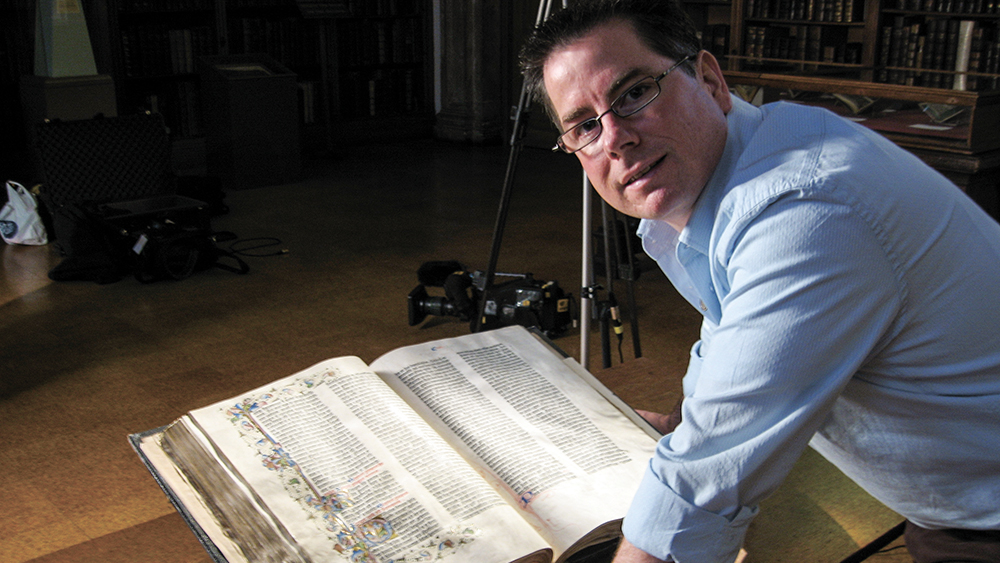There is good news for all the doubters out there: you are not alone. Even Christian pastor, author and public speaker John Dickson says he has doubted pretty much everything he now believes is true.
“There’s probably nothing I hold true today that I haven’t profoundly doubted at some point –including the very existence of God,” Dickson tells Eternity.
“But I’ve learned over the years not to freak out about my doubts, not to think that they are all disobedience, but to pursue those doubts intellectually, and to drill down and work out whether the doubts are inspired by some emotional experience – because there’s a psychological dimension to doubt, not just an intellectual one.”
“Honesty with yourself is crucial.” – John Dickson
We don’t need to fear doubt; it is not always the enemy of faith, he says.
“Anyone who’s going through a crisis of faith needs to be fully self-aware,” says Dickson. “Some people go through crises of faith for really bad reasons, like there’s a life decision they want to make that they know opposes their Christian faith, and so they find themselves not believing that part of the Christian faith any more. And that’s really just letting desire rule the mind.
“But there’s other people who go through crises and it’s a real-world experience that shocks their previous knowledge of what they thought God was like. And then there are people that stumbled across a documentary on SBS that challenged the Bible and so it was simply an intellectual thing.
“Jesus was incredibly influential on lots of the things we love best in the West.” – John Dickson
“The first step when the assault of doubts come along is to work out what kind of doubt it is. And then take the appropriate steps. But honesty with yourself is crucial.”
Talking to Eternity about his latest book, A Doubter’s Guide to Jesus (which he will be discussing on May 3 at Sydney Writer’s Festival), Dickson says: “There is no question you could possibly put to the Christian faith that hasn’t been comprehensively answered by someone somewhere, so don’t panic!”
The book attempts to do two things. First, it seeks to explain the basic history behind Jesus and, second, it is trying to help a non-believer imagine what it might be like to believe by showing how Jesus has influenced people’s thoughts, the church’s behaviour and its culture.
We talk of the passion of Jesus, really meaning his suffering, but he was also passionate.
“Jesus was incredibly influential on lots of the things we love best in the West.” – John Dickson
“His passion was something that entered into the Western tradition as a good thing. We talk of the passion of Jesus, really meaning his suffering, but he was also passionate. You see that with him weeping over Jerusalem, him sweating in prayer, anxious about what’s about to happen to him.”
Dickson explains that although people in the West are used to the idea of expressing emotion, in the ancient world – in the time of Jesus – expressing emotion was frowned upon. It was far more honourable to completely control emotion.
“Into this general cultural matrix comes a story of someone who didn’t bother controlling his emotions, who could really let it rip for justice, really weep over a friend’s death. So I think that has created a pretty healthy approach to emotions in Western culture,” says Dickson.
“To listen to Jesus as my teacher, to actually take what he said seriously is a great challenge.” – John Dickson
While Dickson has been a scholar and Bible teacher for more than 25 years, he found that while writing A Doubter’s Guide to Jesus that he gleaned “a new appreciation of how you can’t box him in.
“My instinct is to think of [Jesus] as Saviour and Lord. Full stop. Partly because these are the most important parts of the thing. He died for me, he rose again – he’s the Saviour, he’s the Lord. But I have to learn not to make the main thing the only thing. I’m challenged when I really read those original sources to think he’s way more than Saviour and Lord. Not less than that – certainly he is Saviour and Lord – but he is a lot more than that.
“For instance, the fact that Jesus was a teacher is incredible challenging to me. To think that an awful lot of the gospel records about him are him just teaching people, and people consistently addressed him as teacher. It was his default mode. To listen to Jesus as my teacher, to actually take what he said seriously is a great challenge.”


